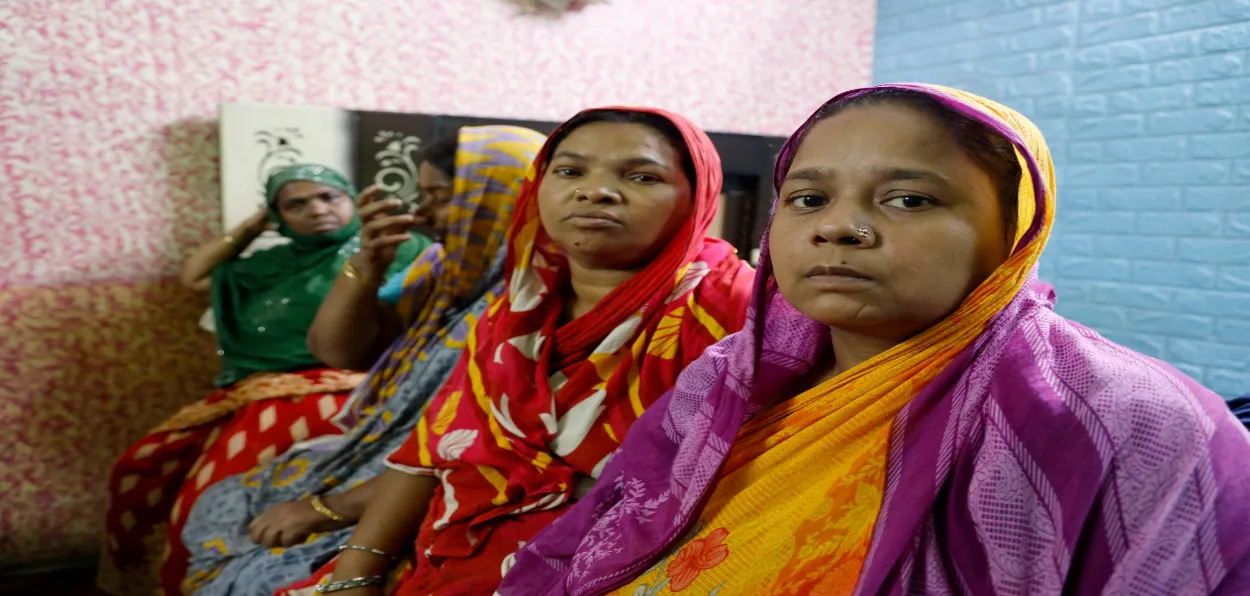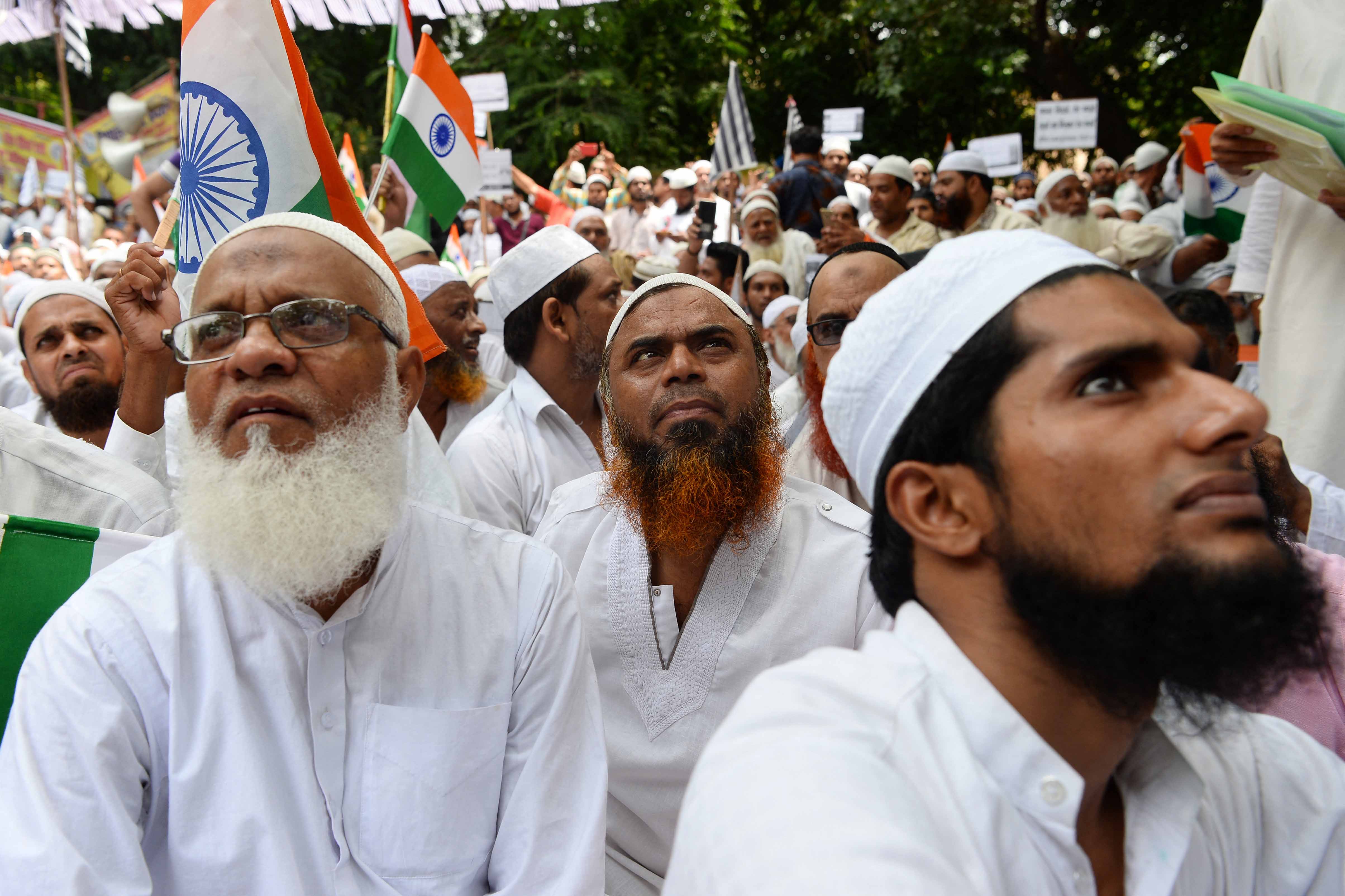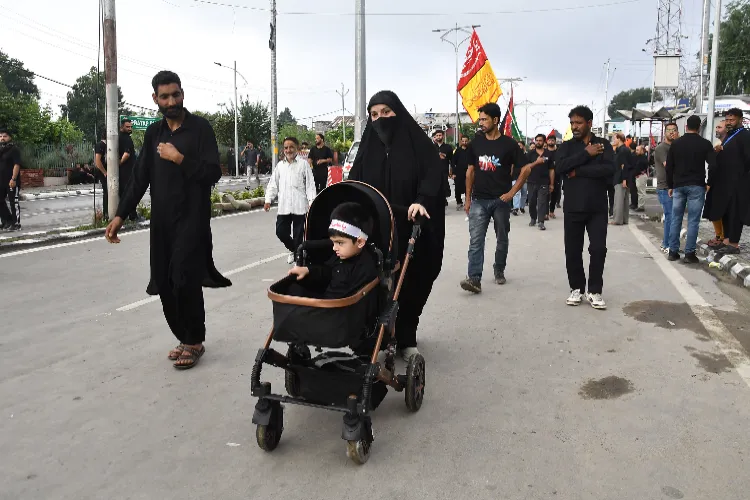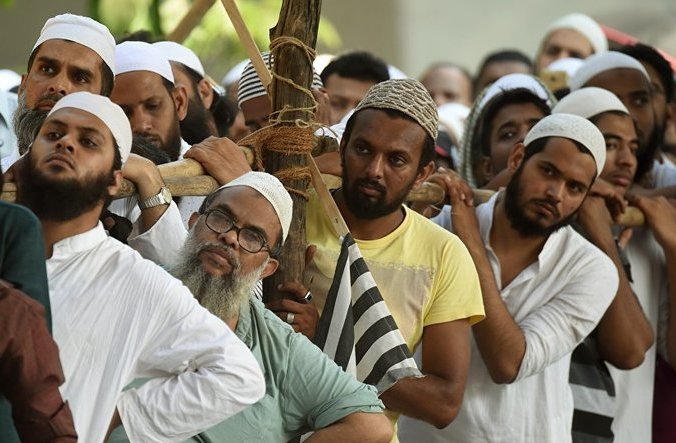
Abdullah Mansoor
It is being said that common civil law cannot be applied to all Indians because of the diversity of Indian society. Such a presumption would be, perhaps, right if the society treated all its members with an even hand and there was no exploitation within a religious group. What should be the course on this if there is a large-scale exploitation of humans within a religious community? For example, Samina Begum is fighting against polygamy in the Supreme Court and the provision of triple talaq has ruined the lives of many women.
Among Sunni Muslims, as per the personal civil code, the ratio of inheritance of property between a woman and a man is 1:2. Also, if the father dies, the grandfather can exclude his grandchildren from the inheritance. A Muslim person can bequeath only 1/3rd of his property; a couple cannot adopt a child. Many such instances show the conflict between the rights of the community and the rights of the individual. In fact, in different religions, laws were made by men and from their perspective.
However, as human civilization evolved and moved toward modern human ideas, the rights were tweaked to give men and women equal rights. However, some religions are yet to give this freedom to women in a way, because they are keen to follow the law made within their religion. This attitude is Ashrafia - conservative, and politically shrewd.
Uniform Civil Code means uniform law for all the citizens of the country. There is a common criminal code in the country, but in civil matters like property, marriage, divorce, succession, and adoption, different religious communities follow separate laws. At present, not only Muslims but also Hindus, Jains, Buddhists, Sikhs, Parsis, and Jews are governed by their personal laws. The Shariat Act of 1937 governs all personal affairs of Muslims in India. The desire for a UCC is expressed in Article 44 of the Constitution, which states that efforts will be made to have a Uniform Civil Code for the citizens of the entire territory of India.

It should also be noted that personal law has not been kept in the Union list but in the state list. The reason why Christians will not be affected by the UCC is that the laws made by British rulers were made on the basis is their religion and culture. For this reason, Christians do not see much problem in modern law. Christian Marriage Act-1872, Indian Divorce Act-1869, Indian Succession Act-1925, Guardian and Wards Act-1890, all these laws apply to Christians.
Mary Roy, the mother of world-renowned activist-author Arundhati Roy, was denied a share in the property as the Travancore Succession Act of 1916 ruled that sisters were not given a share in the property. In 1986, the Supreme Court ruled in favour of Mary Roy, thus leading to many modern reforms in traditional Christian society.
Unlike the Holy Quran, the Shariat law is not divine. It’s mainly derived from four sources – Quran, Sunnah, Ijma, andQayas. Shias useMantak (Logic) instead of Ijma and Qayas and it’s based on the Ulema’s interpretation of the above. This is the reason why despite the Quran being common, we get to see different Shariat in different Islamic-Muslim countries. Shariat is influenced by a country and time. In 1773, Warren Hasting began the process of creating a Uniform Civil Code for India; It was an attempt by the British to bring about uniformity in all criminal matters in modern India. This was done for ease of governance. Given this, the British gave the task of codification of Muslim personal law to Hamilton.
Hamilton used Hidayah, the most important book of Hanafi Islam as the basis of Muslim personal law. This book in Arabic and translated into English in 1791 was based on medieval morality. Here the question arises that the way the British were keen for social reform in the Hindu society and indifferent towards the reforms in the Muslim society.

Arshad Alam writes that the Shariat Act was passed in 1937. This act further helped the mobilization of the Muslim League and the demand for a separate homeland for Muslims. The Muslim League argued that Hindus and Muslims were two separate nations. In this context, the demand for a separate law for Muslims only strengthened the two-nation theory. Sharia law was created for precisely this purpose. The irony is that the Jamiat Ulema-e-Hind has historically been opposed to the two-nation theory, yet today it is advocating the upholding of a law that is at the core of legitimizing this philosophy.
It is true that after independence there was a danger that the majority culture might subsume the minorities. Given this and to instill confidence in Muslim society, India needed the principle of multiculturalism. It was believed that Minorities should enjoy freedom in cultural matters (divorce, marriage, distribution of property, etc.) and that the State should make differentiated laws for different communities and there must be two laws on one issue in the same country. This is the reason that there is a principle of personal law in India that gives some special privileges to minorities. However, this multiculturalism principle came into existence not for individual rights but to protect the rights of the minority community. This is where the question arises: whether a woman and a child should be considered human being first or seen as a part of a society and culture?
Today, the elitist Ashraaf Muslims want to save this backward system in the name of Islam. Why do they want this? Ashrafia Muslims are against every change that can weaken their stranglehold on Muslims. They neither want to give rights to the Pasmanda society nor the Muslim women. They use Muslim personal law as a tool to maintain their bloodline and caste supremacy. The All India Muslim Personal Law Board considers marriage between a Muslim upper caste and a Pasmanda caste illegal based on kafu (equality) and treats such relations as taboo. (Ref: Page No. 101-105, 237-241, Majmu Ekanune Islami, 5th Edition, 2011)
Of course, no tampering with Islam is acceptable. However, the debate is about personal law is political, that is, if the customs and policies of a society are violating the rights of a person, then it is the duty of the state to intervene and make appropriate law as it has been done in the case of Sati, dowry, etc.
Our Ashrafia Muslims have a vested interest in maintaining the status quo because the personal laws are made by this group in the name of Muslims. The All India Muslim Personal Law Board (which interprets Shariat in India), has more than 90% members from Muslim upper castes, and 46 out of 51 executive members are men. The representation of women in the interpretation of this Sharia is negligible. This shows that the responsibility of making the law of the entire Muslim society is in the hands of the Ulema (men) of the Ashraf castes and the majority of Muslims who are Pasmandas have been kept out.
This Ashrafia class does its best to keep emotions high on this issue among Muslims and keep them insecure about their identity. Such a society sees every reformist movement as a threat to its religion and culture. Therefore, we can say that through personal law, the majority of the minority population has been left at the mercy of the rule and politics of Ashrafia Muslim men, who have been interpreting Islam in their way. The truth behind the slogan 'Islam is in danger' is that they do not want the power out of their hands.
The freedom of the community cannot be greater than the freedom of the individual. It cannot be said by showing figures that there is very less exploitation here, therefore the beliefs, traditions, or laws that are being followed are valid and correct. If even a single person's right is violated due to the culture or law of a community, then it is our moral duty to stand against that law.

In the year 639, during the era of the second Rashidun caliph 'Umar ibn al-Khatab, is known as 'Aam al-Ramdah (literally "Year of the Ashes"). Umar also suspended the prescribed punishment for theft during the period of famine. While the Qur'an (5:38) talks about the punishment of chopping off hands, the question is: from where did Umar get this authority to change the punishment written in the Qur'an? Those claiming the divine law cannot be changed, they need to reply to this question.
The UCC not only provides legal protection from evils like divorce, halala, and polygamy by giving equal rights to Pasmanda women but also assures them that in the name of the religion, no fatwa can be enforced on them. We know that parallel laws based on religion are highly gender biased whereas under UCC women will also be given equal rights. At present due to low levels of education among Pasmanda Muslims, the girls are married off early.
The UCC will change this practice of child marriages. With UCC Pasmanda women will be able to get support against atrocities and get equal rights in all respects. This law will be a meaningful step toward the empowerment of Pasmanda women. Eventually, empowerment leads to intellectual progress and in due course, then Pasmanda women will be able to contribute to the development of the country by becoming mentally, physically, and financially self-reliant.
The Law Commission's earlier stand on UCC has been that it is neither necessary nor desirable. But from the point of view of Pasmanda society, this law is very important. Often in history, we see that the voice of social reform emerges from within the society and it is later shaped as the law by the governments as per to the political demand of the time. However, for Indian Muslims, this seems impossible because every voice for rights is suppressed by the Ashrafs who dominate Muslim politics. Governments still do not consider the voice of Pasmanda apt for inclusion in the AIMPLB.
ALSO READ: Why Muslim Dalits enjoyed reservations for only 6 months in Independent India
Recently, Prime Minister Narendra Modi emphasized the need for Uniform Civil Code. Soon after Ashrafia leaders started playing with the emotions of Muslims on Islam relegating the real issues to the backdrop. While criticizing the national ruling party, we should not forget our real aim is freedom from exploitation and injustice. We should see the law on UCC as a step in this direction. This law should be welcomed wholeheartedly for change for the better.
The author is an activist for Pasmanda's rights and a teacher by profession.
